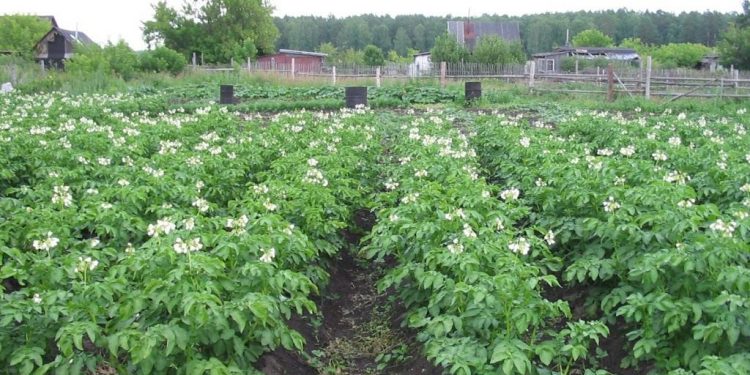This spring in Buryatia, sales of gardening equipment, seeds and fertilizers grew to a record high
Former Minister of Economy of Buryatia, Deputy Chairman of the Public Chamber of the Republic Tatyana Dumnova shared her opinion on the situation with food security in Russia. She compared Russia with other countries and offered several options for improving the life of horticultural non-profit partnerships (SNT) and entrepreneurs.
Over the past two months, residents of Buryatia have been actively buying up gardening equipment, Tatyana Dumnova noted.
- In Buryatia (according to the Federal Tax Service of the Republic of Buryatia) there are 59 thousand gardening and horticultural associations, which employ almost a third of the population of the republic. In March-April, sales of garden tools, seeds and fertilizers increased by a record two or three times. Residents of Buryatia are preparing to massively plant potatoes, – said Dumnova.
The ex-Minister of Economy shared that Buryat potatoes are in demand in other regions (especially in the north) and can become an export product within Russia.
- Speaking of potatoes. According to the consumption norms for the population of the republic, 90 thousand tons of potatoes are required, or 85.5 thousand tons in accordance with the food doctrine. At the end of 2021, 109.8 thousand tons of potatoes were produced in the republic, or 104% of the supply standards. The republic provides itself completely with the second bread. Moreover, out of the indicated volume, 77.6% of potatoes are produced in household plots and private household plots, – Tatyana Dumnova cited the data.
82% of summer residents use their suburban areas to grow vegetables and fruits, according to the All-Russian Public Opinion Research Center. Another 3% grow them purposefully for sale. The situation is similar in Buryatia. According to the Russian Union of Horticulturalists, SNT is the main producer of potatoes (approximately 80%), berries (90%) and vegetables (71%) in Russia.
In other countries, if they have their own dachas, they do not practice the mass cultivation of vegetables and fruits. In European countries, for example, such issues are strictly regulated. However, in the United States, during the 2008 crisis, Barack Obama’s wife tried to teach Americans how to plant beds.
- In most European countries, it is usually allowed to cultivate more than one-fourth of the plot, and the plots themselves, as a rule, do not exceed two acres. In the US, only wealthy people can afford to maintain both an apartment and a country house, even a small one. And there is almost no gardening practice, although remember, during the 2008 crisis, Barack Obama’s wife tried to teach Americans to dig in the beds – she set up a vegetable garden right on the lawn in front of the White House. – shared the ex-Minister of Economy of Buryatia.
Horticultural non-profit partnerships have many economic problems, and legislative attempts to restore order have repeatedly failed. At the federal level, the deputies even suggested eliminating the SNT, when dacha associations are protected and developed in neighboring countries.
To address these issues, the ex-Minister of Economy cited Kazakhstan as an example.
- In Kazakhstan, they recently announced the free distribution of 10 acres to all adult citizens – regardless of whether they own other land plots, apartments or houses. Russian summer residents on an additional 10 acres would fill up the whole country with a “borscht set” and curb food inflation! Dumnova added.
At the end of May, she invited citizens and entrepreneurs to discuss the problems and mechanism for the development of the local economy. Information about the venue promised to provide later.
“By the way, a group of public monitoring of the activities of SNT and ONT “Uprava” is being created at the Public Chamber of Buryatia, we are waiting for representatives and activists of the districts,” said Tatyana Dumnova.







